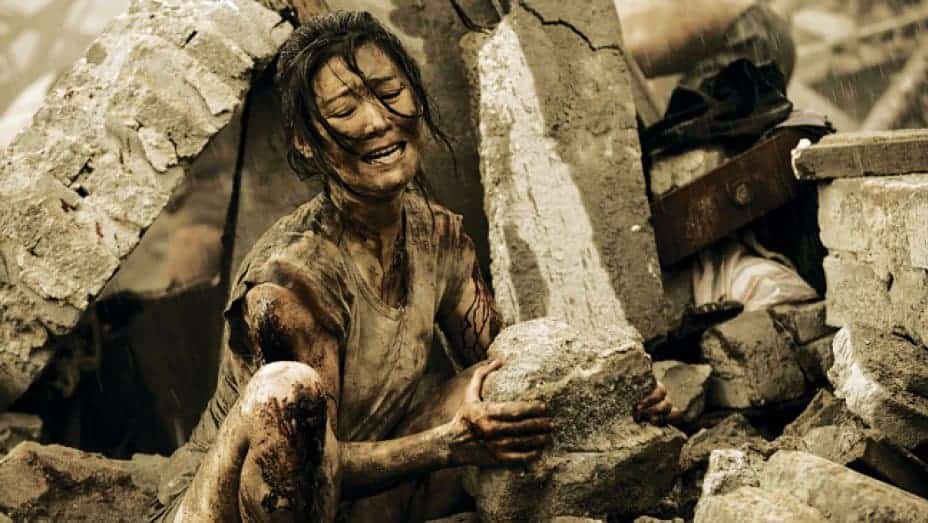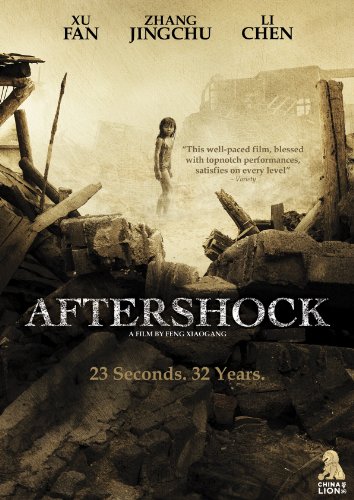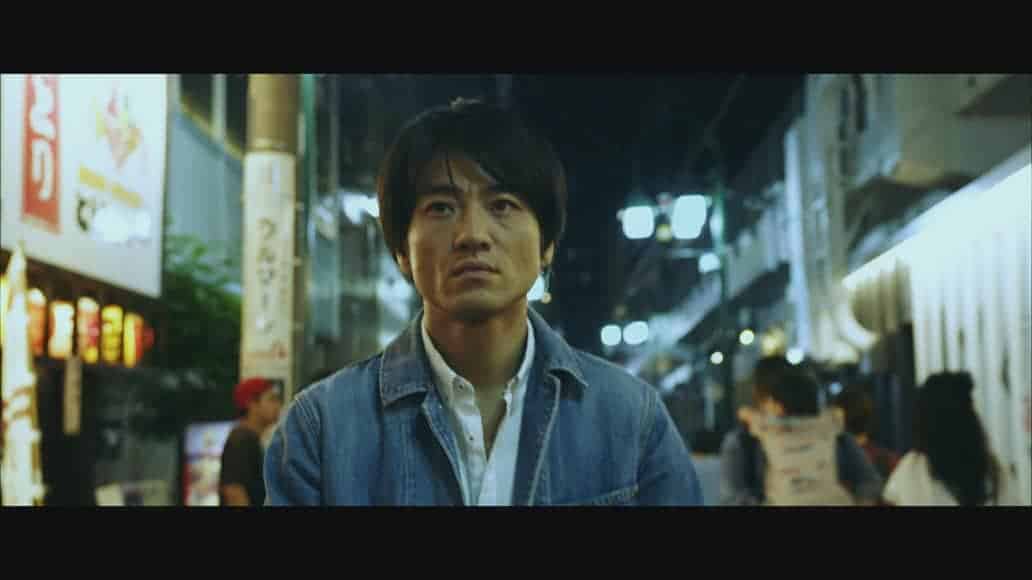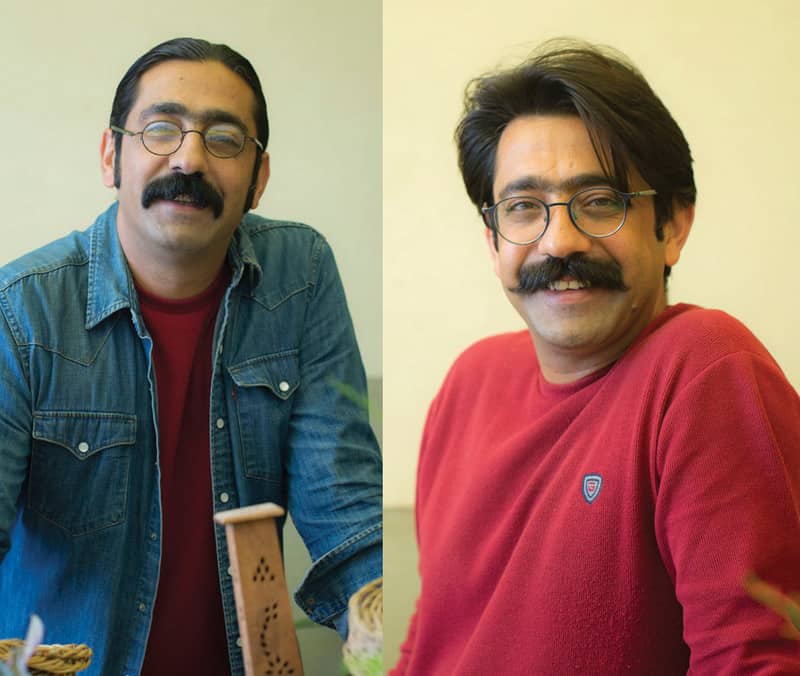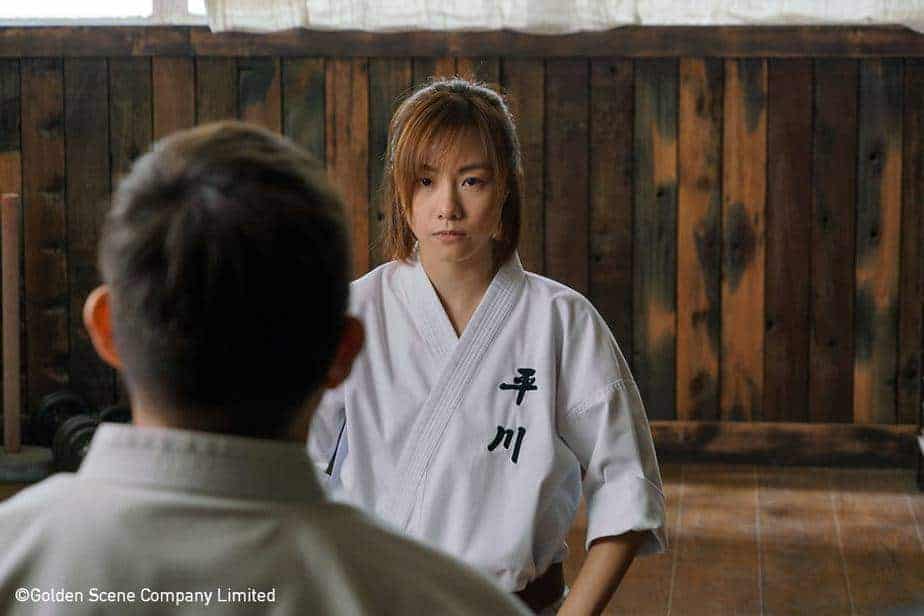In 1976, an earthquake, whose epicenter was in the city of Tangshan, China, caused the death of 250.00 people and remains one of the most terrible catastrophes in Chinese history. When the construction of the Tangshan Earthquake Memorial Park was underway, Chinese media conglomerate Huayi Brothers also started planning on a feature film based on the events of that fateful day , but also on how Tangshan rose “like a Phoenix from the ashes” after the earthquake. Eventually, popular Chinese director Fang Xiaogang, mostly known for his comedies, took over directing duties for “Aftershock”, a big-budget movie centered not only on the catastrophe, but how it affected the lives of a family.
Buy This Title
In Tangshan, the family of Li Yuanni (Xu Fan) lives a modest, but happy life, trying to make ends meet in a tiny apartment like so many working-class families who are their neighbors. However, one night in 1976, tragedy strikes when a terrible earthquake destroys much of the city and causes many deaths, among them Li Yuanni's husband. Shortly after the earthquake has ceased, she discovers her two children under the rubble and asks some of her neighbors to help her rescue them before they are both crushed. But, as the men tell her, they are only able to rescue one of them and under tears Li decides it should be her son. While her mother and her brother are long gone, her daughter regains consciousness and although severely wounded and traumatized makes it to the rescue camp erected by the Chinese Army, where two soldiers take care of the young girl.
Years later, both children have grown into young adults and are on their way into collage or whatever lies ahead for them. Whereas Fang Da (Li Chen), having lost an arm during the earthquake argues with his mother about going to university, Fang Deng (Zhang Jingchu), who still thinks the rest of her family is either dead or missing, prepares for her first semester studying medicine. However, with the memory of that fateful day ten years ago still on their mind, the heavy burden and the trauma both of them, along with Li Yuanni, are unable to let go of the past and venture into a possible future.
Despite its blockbuster appearance, at its core “Aftershock” is mainly a family drama. Through the lives of one family, their paths in life after the event, Su Xiaowei's script reveals the aftershock of the catastrophe which can be felt even 30 years later, adding a conclusion within the 2008 Sichuan earthquake. The story focuses on the three main characters and their development in often quite touching and relatable moments, for example, by connecting the drive of the teenagers to emancipate from their parents with their need to also move on from the memory of that fateful day. It becomes quite obvious how the images and feelings associated with that event cannot be forgotten, especially with the character of Li Yuanni carrying such a heavy emotional burden due to her decision about the fate of her children.
Given the aforementioned ramifications of the production, “Aftershock” features some of the best actors and actresses China has to offer. Since the project's focus is on character development, the cast does a terrific job at capturing how the event has shaped these people and their approach on life and family, with especially Xu Fan as Li Yuanni giving what is arguably the most memorable performance as a character emotionally incapacitated by guilt and sorrow, thus resulting in a quite a few arguments with her son.
However, since the plot covers 32 years, the family history reflects in some way the history of the country, especially of course, the one of Tangshan. Throughout the film, the viewer can observe how the city rises like a “Phoenix from the ashes” as the promotional material for the film suggests, emphasizing how events such as the death of Chairman Mao and the increasing Western influence shape the country and thus the city itself.
Finally, given its budget, “Aftershock” features quite a few impressive uses of CGI. Especially during the earthquake, the viewer can experience the almost apocalyptic enormity of the event, quite fitting given the lasting impression it leaves on the characters.
“Aftershock” is an epic blend of catastrophe thriller and melodrama and a true blockbuster movie with great effects. Due to its talented cast, the movie maintains its focus, telling a story of re-building and trying to come to terms with a terrible event in a nation's and a family's memory.


